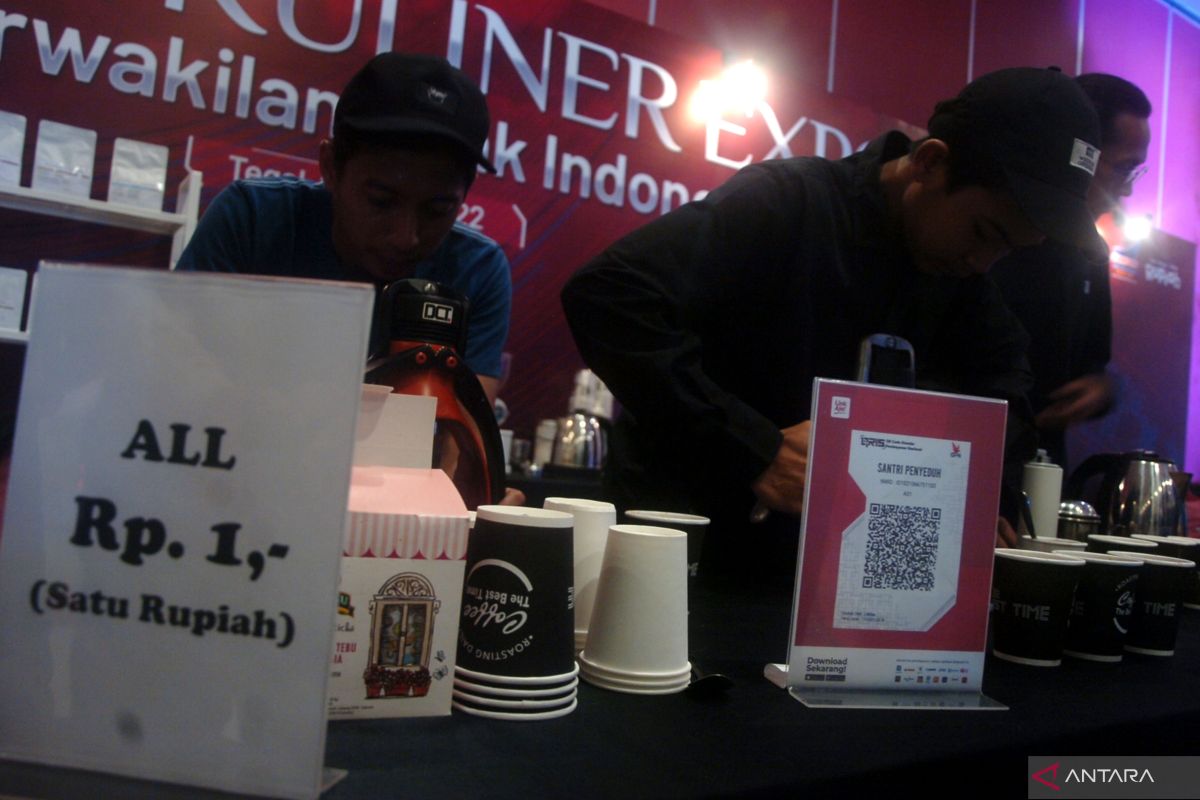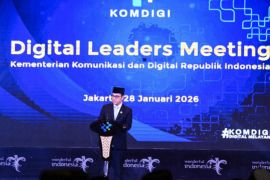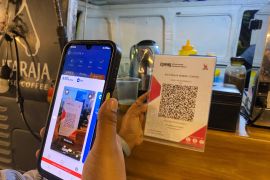Activities in various sectors, including financial service, utilize digitalization. Bank Indonesia recorded that banking transactions, through phones and the internet, increased by Rp39.87 trillion in 2021, or 44.74 percent, as compared to that recorded in 2020.
The government also continues to encourage the financial service sector to undergo digital transformation deemed to provide various benefits to customers and banks.
By undergoing digital transformation, banking can provide more efficient services, such as deposit, investment, credit distribution, and insurance payment.
In addition, customers can avail convenience in receiving services, such as transfer, financial management, e-commerce payment, as well as transportation ticket and hotel booking.
In terms of operation, through digital transformation, banks become more open and quick.
The revenue that they receive from customers can also increase with the existence of new offerings, especially if banks manage to create a digital ecosystem.
The Financial Services Authority (OJK) continues to accommodate digitalization of the financial service sector, including banking, by issuing Financial Service Authority Regulation (POJK) No. 12 of 2021 on General Bank and POJK No. 13 of 2021 on General Bank Product Operation.
In addition, OJK issued a banking digitalization roadmap and blueprint to further encourage the process.
In the report, published in December 2021, DS Innovate estimated that the global market for digital banking had reached US$12.1 billion and can increase to US$30.1 billion in 2026.
This aligns with the reports from Google, Temasek, and Bain, which mentioned that the Indonesian digital economy will grow, from US$44 billion in 2020 to US$124 billion in 2025.
One of the actors of digital banking, PT Bank Digital BCA, which unveiled the Blu platform last year, managed to draw more than 806 thousand customers.
This figure is targeted to increase to one million until the end of 2022.
From the total 806 thousand users, 49 percent of the users are generation Z, some 39 percent are millennials, 11 percent are generation X, and the remaining one percent are baby boomers.
The BCA will continue to expand the scope of Blu's customers, including to beyond Java Island, as Blu's service can be accessed anywhere as long as there is internet infrastructure.
The effort to expand Blu's customers is made through advertising and promotion that targets the population across Indonesia, BCA Digital President Director Lanny Budiati stated.
This is undertaken with the hopes that the people can directly download and register to become Blu's customers, she remarked.
Consumers' protection
In addition to scope expansion, data security should be taken into account by banks that have to maintain customers' trust, so that they are willing to use digital banking services.
Digital transformation provides convenience in accessing banking service but it also poses dangers and risks that necessitated the presence of a legal umbrella to protect digital technology users.
As part of the BCA Group, BCA Digital strives to apply the same standard as BCA when it comes to its data management, both in terms of IT infrastructure and management, Budiati remarked.
Customers should also become more aware of the importance of maintaining personal data, such as through the use of PIN, OTP, and CW code, that only customers know.
Customers should not share this information with others, including those claiming to be the bank's staff.
"We continue to educate customers concerning this matter, whether through cooperation with BCA or other banks related to data secrecy education," she noted.
"The expectation is that transaction fraud cases can decrease in future," she added.
Center for Indonesian Policy Studies (CIPS) researcher Pingkan Audrine Kosijungan stated that amid digital transformation in various sectors, protection given to people should not solely encompass consumer protection in the digital economy landscape but should also involve the protection of civil liberties within the democratic system that supports the economy.
Businessmen, regulators, and consumers should understand their respective roles, rights, and obligations in conducting digital transactions and handling consumer rights violation cases.
Revision of Law No. 8 of 1999 on Consumers Protection is considered necessary since it has not matched the changes, challenges, and risks that arise from the rapid digital transformation process.
According to the CIPS research, while the law describes consumers' rights in general, it has not yet accommodated consumers' rights in digital transactions due to several stipulations concerning digital transactions that had yet to be adequately discussed.
This revision is necessary to respond to various developments within the scope of digital transformation.
Indonesia Cyber Security Forum (ICSF) Head Ardi Sutedja highlighted the role of the government's policy that mandates Electronic System Operator (PSE) enterprises to register themselves with the government.
This mandate is one of the key policies to bolster people's data protection in the digital space, he explained.
In addition to ensuring that the people are safe from irresponsible actions from unregistered PSEs, the regulation can contribute to the state revenue through taxation.
Several parties consider that the cross-border industry is immune to tax obligation in countries in which unregistered PSE operate.
This perception is highly erroneous since PSE users, who often "sell themselves without receiving the reward for it," can be harmed by this while PSEs profit significantly.
The PSE registration obligation also became an initial step to protect the people from personal data abuse and commercialization when they register to a digital platform.
This human rights protection became the focus of the government's policy that mandates PSEs to register themselves, Sutedja remarked.
Related news: Jalin, Bank Mandiri Taspen support national banking digitalization
Related news: Personetics provide personalized insights to regional bank customers partners with Japan’s leading innovator in digital banking, iBank
Related news: Digital banking transactions grow to Rp3,766.7 trillion in May
Editor: Rahmad Nasution
Copyright © ANTARA 2022












